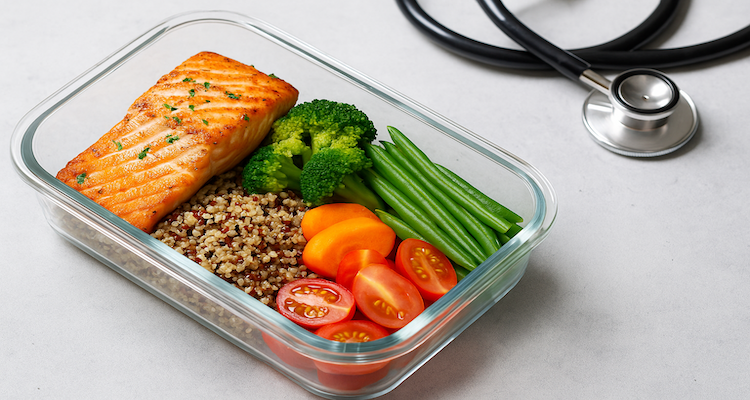What Doctors Really Eat: Daily Diets of Top Physicians

Curious about what fuels top doctors? Discover the surprising eating habits and daily diet choices of leading physicians across specialties.
Introduction: Food Prescriptions from the Prescribers
When it comes to health, doctors write the rules. But what happens when they close the clinic doors and head home for dinner? What do the people who advise millions on diet, disease prevention, and longevity actually put on their plates each day? As society grows increasingly health-conscious, many are now asking: what do the doctors themselves eat to stay healthy?
In an age of wellness influencers and food fads, examining the real-world habits of those with scientific training offers a grounded, fact-based look at nutrition. We interviewed top physicians, examined published surveys, and reviewed insider accounts to paint a comprehensive picture of what a typical day of eating looks like for leading medical professionals—and the results might surprise you.
Context: Science Over Fads
Nutrition trends come and go—keto, paleo, intermittent fasting, Mediterranean, and plant-based eating have all had their time in the spotlight. However, doctors—especially those who specialize in lifestyle medicine, cardiology, endocrinology, and gastroenterology—tend to steer clear of extremes.
According to a recent survey conducted by the American College of Lifestyle Medicine, over 85% of physicians believe that nutrition is a crucial part of treatment and prevention. Yet ironically, formal medical training includes very limited education on nutrition—typically fewer than 25 hours throughout medical school.
Despite this gap, many doctors take it upon themselves to learn and adopt evidence-based eating habits. Their diets aren’t about trends—they’re about long-term health, cognitive performance, and disease prevention.
What’s on the Menu? Inside Doctors’ Daily Diets
Breakfast: Function Over Frills
Most doctors skip sugary cereals or fancy cafe orders. Instead, they opt for functional foods that deliver fiber, protein, and sustained energy.
Dr. Samantha Shah, a cardiologist at NYU Langone, starts her day with oatmeal topped with chia seeds, berries, and a touch of almond butter. “I need something heart-healthy that won’t spike my blood sugar before rounds,” she says.
Other common choices include:
-
Greek yogurt with walnuts and flaxseed
Smoothies with spinach, protein powder, banana, and oats
Avocado toast on whole-grain bread with eggs
Interestingly, intermittent fasting is popular among hospitalists and ER doctors due to irregular schedules. Some skip breakfast entirely and consume their first meal at lunchtime.
Lunch: Quick, Balanced, and Meal-Prepped
For busy clinicians, lunch is about convenience and nutrition. Most report bringing meals from home rather than ordering out—often for control over ingredients and portion sizes.
Common lunch staples:
-
Grilled chicken or salmon with quinoa and roasted vegetables
Lentil or black bean salads with olive oil dressing
Leftover stir-fry or pasta with added greens
Dr. Jose Martinez, an endocrinologist in Chicago, says he avoids processed snacks. “I rely on fiber-rich meals to keep me full and avoid the blood sugar crashes that come with white bread or soda.”
Dinner: Clean, Comforting, and Family-Friendly
Dinner tends to be more relaxed and focused on family. Doctors often cook at home—choosing meals that are satisfying but still align with healthy principles.
Popular choices include:
-
Baked fish with steamed vegetables and brown rice
Chicken curry with cauliflower rice
Whole-grain pasta tossed with olive oil, garlic, tomatoes, and spinach
Plant-based eating is on the rise, too. A growing number of physicians—especially those in preventive medicine—are switching to predominantly vegetarian or vegan meals, citing cardiovascular and metabolic benefits.
What Doctors Avoid—and Why
Physicians aren’t food saints, but most do draw hard lines around ultra-processed and inflammatory foods. Among the top no-go items:
-
Sugary sodas and energy drinks
Fast food burgers and fries
Packaged snacks like chips and candy bars
Excessive red or processed meats
Dr. Lena Ho, a lifestyle medicine physician, notes: “I don’t ban indulgences, but I avoid foods that lead to chronic inflammation. Once you see the link between diet and disease in your patients every day, it changes how you eat.”
Most physicians also avoid fad diets that promise fast results without long-term sustainability.
Expert Opinions: Food as Medicine
Nutritionists and health coaches who collaborate with physicians confirm these trends.
“Doctors are starting to walk the talk more than ever,” says Dana Moreno, RDN, who coaches clinicians in high-stress roles. “They value brain health, gut health, and energy—so they eat for performance, not vanity.”
Dr. William Li, author of Eat to Beat Disease, emphasizes foods that promote angiogenesis, gut microbiome diversity, and immune function. “Doctors are turning to fermented foods, berries, leafy greens, and legumes. The days of bland low-fat diets are over.”
Impact: Why It Matters for Patients
Understanding what doctors eat isn’t just trivia—it has public health implications. Studies show that physicians who maintain healthy diets are more likely to counsel their patients on lifestyle changes and earn trust when they do so.
It also challenges the perception that healthy eating is time-consuming or unrealistic. If a surgeon with 12-hour shifts can prep quinoa bowls and snack on almonds, patients may be more inclined to follow suit.
There’s also a growing trend of physicians using social media and blogs to share recipes, meal plans, and personal food philosophies—bridging the gap between science and real life.
Conclusion: Takeaways from the Top
While no two doctors eat exactly the same, their diets share common threads: whole foods, balance, simplicity, and consistency. They avoid the extremes, stay mindful of portion sizes, and prioritize long-term health over quick fixes.
Whether you’re trying to build a heart-healthy plate, manage your blood sugar, or simply gain more energy, looking to doctors for food inspiration might be one of the smartest things you can do.
After all, when the people who treat disease choose prevention over prescription, it’s a message worth listening to.
(Disclaimer: This article is for informational purposes only and is not intended to serve as medical advice. Always consult with a licensed healthcare provider before making changes to your diet or health regimen.)
Also Read: 10 Daily Habits That Are Quietly Wrecking Your Health










